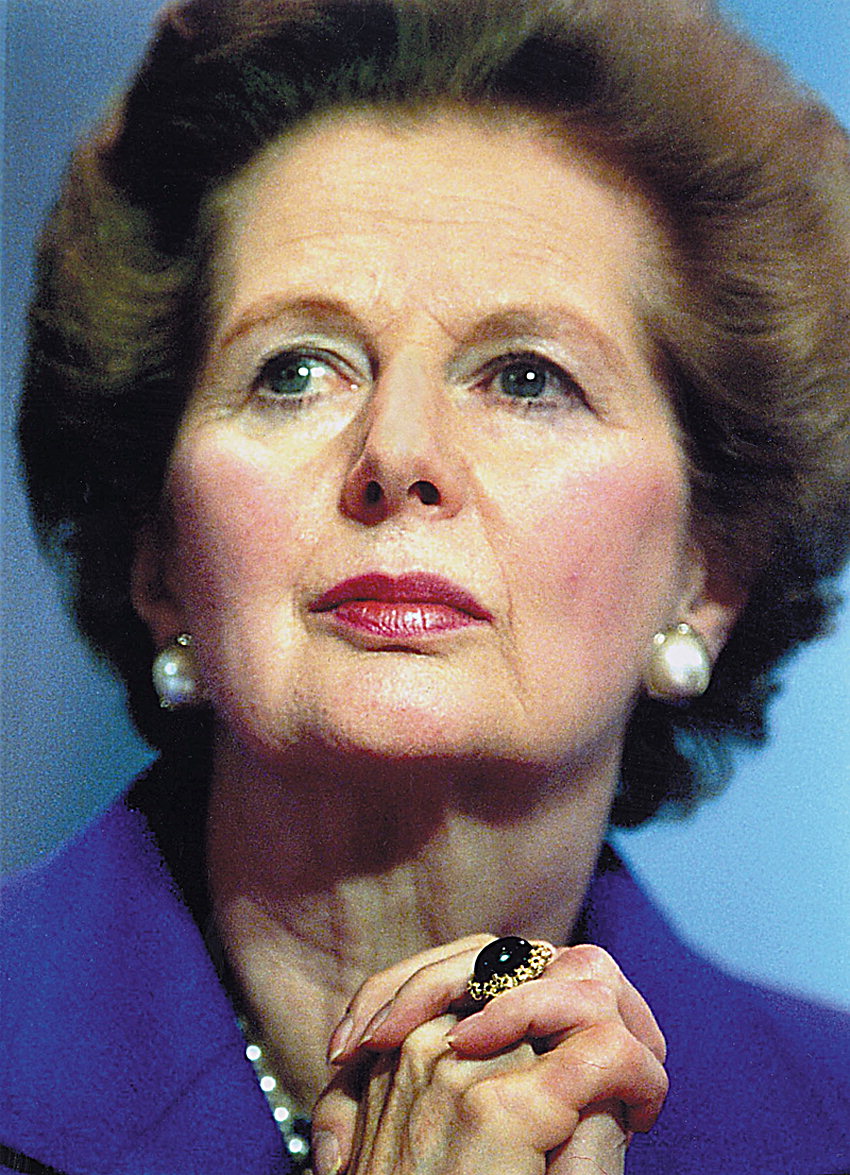



Thatcher was committed to reducing the power of the trade unions, whose militant leadership she accused of undermining parliamentary democracy and economic performance through paralysing strike action.[84] Several unions launched strikes in response to legislation introduced to curb their power, but resistance eventually collapsed.[85] Only 39% of union members voted for Labour in the 1983 general election.[86] According to the BBC, Thatcher "managed to destroy the power of the trade unions for almost a generation."[87]
The number of stoppages across the United Kingdom peaked at 4,583 in the crisis year of 1979 that brought Thatcher to power, with over 29 million working days lost. 1984, the great year of industrial confrontation with the National Union of Mineworkers (NUM), saw 1,221 stoppages and over 27 million working days lost. Stoppages then fell steadily through the rest of Thatcher's premiership, to 630 by 1990, with under 2 million working days lost, and continued to fall thereafter.[62] Trade union membership also fell, from over 12 million in 1979 to 8.4 million in 1990.[62]
The miners' strike was the climax of the confrontation between the unions and the Thatcher government. In March 1984 the NUM ordered a strike, without a national ballot,[88] in opposition to National Coal Board proposals to close 20 pits out of 174 state-owned mines and cut 20,000 jobs out of 187,000.[89][90][91] Two-thirds of the country's miners downed tools.[90][92]Thatcher refused to meet the union's demands,[49] and said: "We had to fight the enemy without in the Falklands. We always have to be aware of the enemy within, which is much more difficult to fight and more dangerous to liberty."[87]
Violence was common on the picket lines during the miners' strike; controversial police tactics were used against strikers.[87] The strike resulted in at least three deaths.[89] Two miners, Joe Green and David Jones, were crushed to death by lorries while picketing.[89][93] Two miners, Dean Hancock and Russell Shankland, were sentenced to eight years' imprisonment for the manslaughter of taxi driver David Wilkie who was taking a working miner to his colliery.[94] Some 20,000 people were injured in the course of the strike.[95] 11,300 miners and their supporters were arrested and charged with criminal offences.[92][96]
The NUM's failure to ballot and the picket line violence and intimidation cost the strike public support. A MORI poll in June 1984 found that 41% of people backed the Coal Board, and 35% the miners. By August support for the Board had risen to 46%, while support for the miners had fallen to 30%. The position remained unchanged at the end of the year. The miners' strike also split the trade union movement, with lorry drivers, dockers and power station employees crossing picket lines or handling coal.[96] The strike was described as "one of the most aggressive trade union struggles since the 1926 General Strike",[93] with some commentators even suggesting it was "the nearest the country had come to civil war for 400 years".[92]Archbishop of Canterbury Robert Runcie accused Thatcher personally of fostering a "politics of confrontation", and blamed her policies for high unemployment, which he said had created "despair about the future".[90]
After a year out on strike, in March 1985, the NUM leadership conceded without a deal. The cost of the strike to the economy was estimated at least £1.5 billion. The strike was also blamed for much of the pound's fall against the US dollar.[96] The government proceeded to close 25 unprofitable pits in 1985; by 1992, a total of 97 pits had been closed,[97] with the remaining being sold off and privatised in 1994.[98] These actions had great effect on the industrial and political complexion of the country.[88] The eventual closure of 150 collieries, not all of which were losing money, resulted in a loss of tens of thousands of jobs and devastated entire communities,[97][99] delivering a blow from which the coal industry, with 50 mines employing 6,000 people, has barely begun to recover, with plans for 58 new open-cast mines and up to a dozen new deep mines.[99]
No comments:
Post a Comment